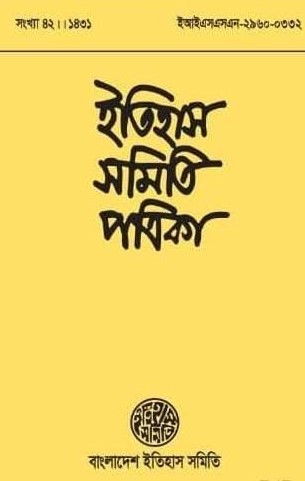চট্টগ্রামে অসহযোগ আন্দোলন ও স্বাধীনতা যুদ্ধের সূচনা : আজাদী পত্রিকার ভূমিকা

চট্টগ্রামে অসহযোগ আন্দোলন ও স্বাধীনতা যুদ্ধের সূচনা : আজাদী পত্রিকার ভূমিকা
ফারহানা আজিজ
সহকারী অধ্যাপক, ইতিহাস বিভাগ, চট্টগ্রাম বিশ্ববিদ্যালয়
DOI: https://doi.org/10.59815/isp.vol4212
Abstract: In the history of the emergence of Bangladesh, the Non-cooperation Movement of 1971 is the most crucial event. At the call of Sheikh Mujibur Rahman, the movement ran in East Pakistan from 2nd March to 25th March. The reason behind this movement against the then Pakistani government was delaying the power transfer of the army ruling clique to the Awami League even after a landslide victory of the latter in the general election of 1970. Instead of transferring power to Sheikh Mujib, President Yahia Khan adjourned the general assembly session for an indefinite period on 1st March, 1970. Bangabandhu vehemently opposed this attitude and termed it ‘so unfortunate’. In response, he called a strike in Dhaka on 2nd March and throughout East Pakistan on 3rd March. Since then Awami League led the Non-cooperation Movement to achieve people’s rights in East Pakistan. At one stage of his 7th March speech, Sheikh Mujibur Rahman declared the program of the Non-cooperation Movement. The spirit of the movement spread to every nook and cranny of East Bengal. Like each part of East Pakistan, people from all walks of life in Chittagong joined the movement spontaneously. Several newspapers published in Chittagong started to cover the news of this movement regularly. The masses of Chittagong and those local newspapers played a pivotal role in shaping this movement on the eve of our War of Liberation.
Key Words: Non-cooperation Movement, Newspaper, Dainik Azadi, Satyagraha.
VIEW FULL ARTICLES



